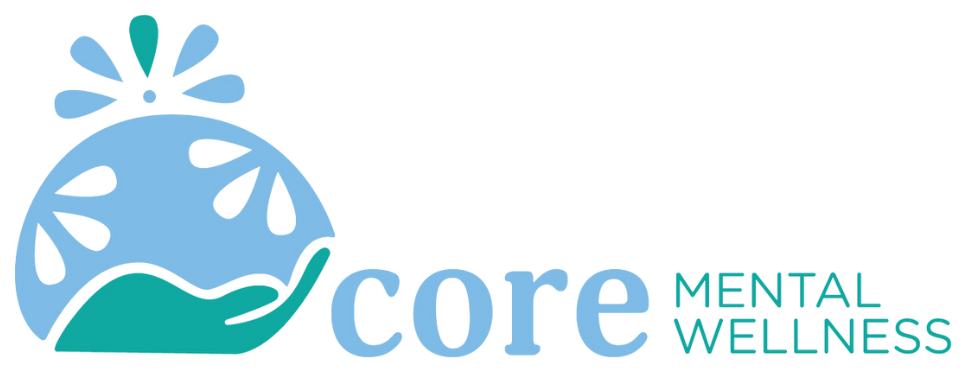In the news

For many college students, winter break is a welcome pause—a time to rest, reconnect with family and friends, and enjoy the comforts of home. However, the transition back to campus life after the holidays can bring its own set of challenges. Whether it’s adjusting to a new routine, managing academic pressures, or simply navigating the emotional shift, returning to college after winter break can feel overwhelming. Here are some tips to help make this transition smoother and more intentional for students: Reflect on the Past Semester Take time to evaluate the highs and lows of your previous semester. What worked well for you? What challenges did you face? Reflecting on these experiences can help you set realistic goals and identify areas for improvement. Consider journaling or talking with a trusted friend or mentor to process your thoughts. Set Intentions for the New Semester Instead of diving back into college life without a plan, take a moment to set clear intentions. These might include academic goals, self-care habits, or social aspirations. For example, you might aim to attend more professor office hours, join a new club, or prioritize consistent sleep. Reconnect with Your Support System Returning to campus can sometimes feel isolating after spending time with family and friends. Reach out to roommates, classmates, or members of your campus community to reconnect and rebuild your support system. Having a network of people who understand your experiences can make a world of difference. Create a Balanced Routine The start of a new semester is the perfect time to establish healthy habits. Balance your schedule by allocating time for classes, studying, exercise, socializing, and relaxation. Don’t forget to leave room for flexibility, as unexpected opportunities and challenges may arise. Prioritize Self-Care Winter’s shorter days and colder temperatures can impact energy levels and mood. Combat the winter blues by prioritizing self-care. This might include staying active, eating nourishing foods, and seeking out natural sunlight whenever possible. Mental health is just as important as physical health, so don’t hesitate to seek support if needed. Ease Into Your Academic Workload The temptation to hit the ground running can be strong, but it’s important to pace yourself. Review your syllabi and create a plan to manage your assignments, readings, and exams. Start with small, manageable tasks to build momentum without overwhelming yourself. Embrace New Opportunities A new semester offers a fresh start. Be open to trying new things, whether it’s taking on a leadership role, attending campus events, or exploring different study techniques. Embracing change and growth can lead to unexpected and rewarding experiences. Practice Gratitude As you transition back to college, take a moment to appreciate the opportunities and experiences ahead. Practicing gratitude can shift your mindset and help you approach challenges with resilience and optimism. Returning to college after winter break can feel like a whirlwind, but with a little preparation and mindfulness, it can also be a time of renewal and growth. By reflecting on the past, setting intentions, and taking care of yourself, you can create a meaningful and successful semester. Remember, it’s okay to ask for help and lean on your support system as you navigate this transition. Here’s to a fresh start and a fulfilling new chapter! Please reach out to me at debbie@corementalwellness.com if you need support during the semester.

With election day upon us, many people are feeling a whole array of emotions. I have talked to a lot of people over the past few weeks that are all expressing a sense of fear and anxiety. Election anxiety is common, especially during a high-stakes election. Often it can feel overwhelming to manage the social media posts, T.V. ads and campaign rhetoric leading up to election day. This anxiety can spill over after the first Tuesday of November depending on the election results and your personal viewpoints. I am hoping this blog post will help you identify your anxious thoughts and give you some tools to ease your emotions. Strategies that may help ease your anxiety: Limit Your Triggers : Constantly checking for updates can heighten anxiety. Consider setting specific times for news and social media, rather than refreshing throughout the day. Set Boundaries in Conversations : Talking about politics is inevitable, but it can become exhausting. It’s okay to set boundaries with friends, family, or colleagues if you need a break from political discussions. Focus on the Present: Anxiety often stems from worrying about the future. Practicing mindfulness can help keep you present. Simple techniques, like deep breathing or a five-senses grounding exercise (Find and name 5 things you can see, 4 things you can feel, 3 things you can hear, 2 things you can smell, and 1 thing you can taste.) can reduce stress. Vote or Volunteer : Taking productive action, such as volunteering, making calls, or donating to a cause you support, can give you a sense of control and purpose. Take Care of Yourself : Make sure you’re eating well, sleeping, exercising, and engaging in activities that bring you joy. These simple routines can help keep your mind and body resilient. Seek Community and Support : Connect with others who understand how you’re feeling. Having conversations in a supportive environment can provide relief and validation. Practice Gratitude : Focus on things you’re thankful for each day. This helps shift your attention away from anxiety and toward positive aspects of life. Be Gentle with Yourself : It’s normal to feel stressed during intense times. Remind yourself that this is temporary and allow yourself to feel what comes up without judgment. If you want to talk more about the anxiety you are feeling, let's talk! Reach out to me at debbie@corementalwellness.com

The transition to college is a significant step toward adulthood and independence. While it comes with its challenges, it also offers immense opportunities for growth and development. Both students and parents can navigate this journey successfully with preparation, communication, and mutual support.

When I tell people I am a therapist, people typically react by either retreating or oversharing. The most common response is a sense of discomfort. I can tell when people immediately wonder if I am analyzing them right then and there. It's also really common for people to start to say something about therapy and end up sharing private details related to their childhood or relationships. These initial introductions are usually in public and often with other friends and there is often an uncomfortable moment, especially if people are not use to meeting therapists in the grocery store check-out line! I assure you, I am not focused on anything more than meeting you. Meeting someone who is a therapist and going to therapy are not the same experience, not for me or for you. Since therapy is not the same thing as conversations between friends, it offers more powerful outcomes. People often think something major needs to have happened (such as a death or significant trauma) in order for someone to need to see a therapist. In my experience, while that kind of intervention is important, typical therapy is something very different. It is useful and even practical for anyone who is interested in examining how they might live a happier, healthier, and more authentic life. For this blog post I decided to answer a few of the initial questions I hear to educate and reduce the stigma that still is attached to mental health and therapy. What is therapy? Therapy is an opportunity to talk about issues that are important to the client, while having a trained, objective person (the therapist) help work through not only the current situation, but also how to deal with similar situations in the future. Therapy can be about one specific problem, or it can be about multiple issues. Therapy is a collaborative event, it requires an active role from both the client and the therapist for change to occur. Do I have to be “sick" to see a therapist? No! While some therapists do specialize in specific mental health diagnosis, many focus on everyday life challenges. The majority of clients I see are successful, high achieving people who are very healthy. Most are challenged with a specific goal, like creating a better work-life balance, dealing with a transition in their life, finding ways to be a more effective parent, building self-esteem, or reducing the anxiety they feel daily. How do I find the best therapist for me? There are so many options for therapists these days. Often starting by looking at therapist websites can be helpful. Notice what each therapist values by what they emphasize. You'll see differences in how they offer their services and the way they describe the work that they do. As mentioned above, therapy requires us to work together and that means that we have a good connection and strong "fit." I offer a free 15-minute consultation to anyone looking for a therapist so we can meet and go from there. What happens in a session? While each session is different, typically the therapist will invite you to share what has happened since your last meeting/appointment. They may ask you what you want to talk about and what goals you have. There are no right or wrong answers. Sometimes, people talk about their past but most of the time people talk about present day situations and goals for the future. I often take notes during the session so that I can come back to a topic if needed without interrupting my clients. Everything said during therapy is confidential. How long do people go to therapy? That all depends on the individual. I have had clients who see me for one session and feel like they can manage on their own. I also have a clients that I have seen for many months or years. Therapy can be whatever you need it to be at this moment in time. It could be a one-time conversation to gain a bit of perspective, or short-term, temporary support during some type of life transition, or an ongoing relationship to address more complex challenges. If you are in need of support or know someone who is or if you have any other questions about what therapy is like, please reach out to me at debbie@corementalwellness.com .

Welcome! My name is Debbie and I am the therapist behind Core Mental Wellness. I officially launched my practice October 2022 and appreciate you stopping by this site. The demand for more mental health services is so great right now. I hope to fill a need in the MN and WI community by offering a convenient, affordable way to access mental health therapy via tele health. I see this space as a way for me to share with you a variety of articles I come across that may be of interest to you as well as a place for me to share things I have learnt and continue to learn in the mental health realm. My love for learning runs deep, so I am continuously reading, taking classes, engaging with other mental health professionals, and attending conferences. I have a passion for psychoeducation and enjoy sharing that with others. I am so glad you are here. If you would like to connect, please send me a message via the contact page of this site or feel free to email me at debbie@corementalwellness.com Thanks for being here, Debbie
Let's Talk
The first step in therapy is talking. Let's find a time where we can meet and talk about what's on your mind.

